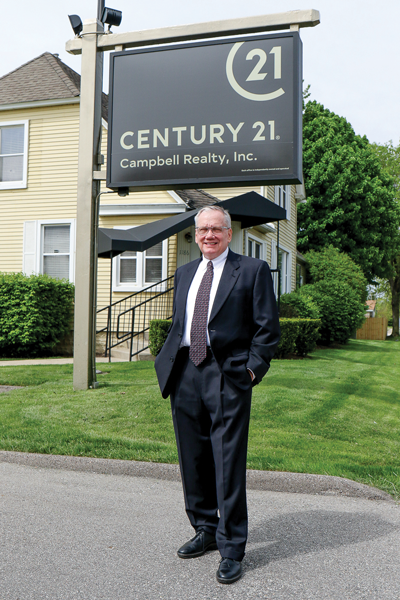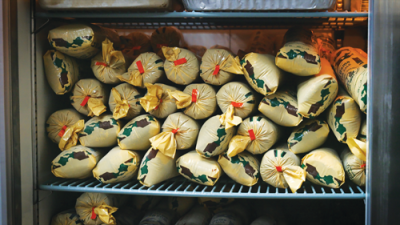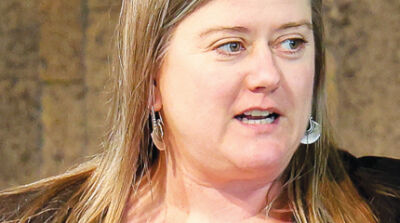
Century 21 Campbell Realty owner Larry Campbell recently said that “rentals and leases are in very, very short supply,” which has led to higher rents.
Photo by Patricia O’Blenes
METRO DETROIT — Over the course of many years, the American dream for a large portion of the population has been to save up enough money to eventually buy a home.
One of the most popular routes for achieving that aspiration has been to rent an apartment or home while saving money for a down payment.
However, current conditions have made that an old-fashioned notion for some.
“There appears to be a shortage in all of the markets, both rental and single-family homes and condos, because wanna-be buyers cannot find housing that’s suitable or affordable, which has caused people to look for rentals and leases,” said Larry Campbell, who owns Century 21 Campbell Realty in Madison Heights. “Rentals and leases are in very, very short supply, and as a result, the rentals, I would say in the last 18 months, have probably gone up 25% or 30%.”
According to information released last month by Rent, which provides data at a national level, Michigan and Minnesota are experiencing the biggest rental price increases in the country.
Campbell estimated that 18 months ago, a 1,000-square-foot brick home in Madison Heights with a basement and a garage would have rented for around $1,300 per month.
“I think today, if you wanted a three-bedroom brick, it’s $1,800-$2,200, and it’s gone up, I’d say, 30% in two years,” he said.
As another example, Campbell said in Berkley, for a 1,000-square-foot home, “You’re well over $2,000 for a rental in that community.”
Unfortunately for those who are looking for a less-expensive alternative, apartments aren’t necessarily the answer anymore, either.
“Even your apartments, which used to be pretty reasonable, they’ve gone up,” Campbell said. “If you were charging $1,000, and now I’m charging you $1,300, that’s a 30% increase.”
Madison Heights resident Kelly Watson estimated that she has been renting the condominium that she currently resides in for approximately five years. She said that during that time, the rent has gone up approximately $400, with an average increase of about $75-$100 per year.
“You’re unable to save any money to put towards a house, because rent is more than the average mortgage,” Watson said. “In my situation, I can’t just go get a mortgage for a house being a single person with a single income. I wouldn’t qualify for any type of mortgage for any type of house that I could afford to live in.”
Kate Terhune is the director of brand for Rent. She said that an increase in rental prices has “absolutely” been a national trend.
“We’re seeing quite a lot of interesting factors at play between the housing market and the rental market,” Terhune said. “With housing prices being as high as they have been, they’re reaching record highs, and interest rates are remaining high and aren’t coming down to where we thought they might come down. Those two things are going to put way more pressure on the rental market.”
Campbell agrees that an increase in rental prices is a nationwide trend.
“What’s happened is a lot of buyers have been knocked out of the market because of (the) cost of housing, the cost of interest,” he said. “Housing is not affordable and accessible, so they’re looking for apartments, condos and houses, and the demand is … much stronger than the inventory, so landlords have an opportunity to get top dollar. … The cost of real estate is more expensive today than it’s ever been, which is eliminating a lot of purchasers (from) coming into the market.”
As for whether it’s better to rent or buy given current market conditions, according to Campbell, it depends on individual circumstances. He is not optimistic that things are going to change anytime soon.
“I don’t see it changing because the inventory’s not getting better,” Campbell said. “Everyone is in a stay-in-place type situation. If you own a house, it’s hard to find another house when you’re moving, and now, when you look at all of the economic factors — interest, taxes, and lack of inventory — a lot of folks are deciding not to move.”
Watson thinks her best option for now is to stay put.
“There’s not really many alternatives in my situation,” she said. “For me, (it’s) stay here and suck it up and hope that every time the lease renewal comes up, it’s not a big jump.”
Another reason why it may be best for Watson to stay put is due to what she said are currently unrealistic requirements to rent a property.
“Say the rent they’re charging is $1,700; they want you to have four to six times that amount in income a month to be eligible,” she said. “The units straight across from us, they’re charging $1,300 a month, but you have to make five times that in order to even be eligible to apply for an application to rent there, so it’s becoming real hard for renters to move.”
Adapting to her current circumstances has called for a mixture of cutting back on things and working more hours at a second job, according to Watson.
Campbell understands how tough it is out there.
“Nowadays, it’s pretty much taking two incomes to qualify for a house or (as) a tenant,” he said. “It’s real hard for one person to be able to make ends meet. … Most households require two incomes to make things happen.”
Despite the challenging circumstances that many are facing, Terhune did offer some tips for those who are searching for a rental property.
“I usually tell people, ‘Check places like rent.com (and) apartment.com. When you’re going to find a place to live, look around at the properties that are near your target destination and get a good sense of what all the different properties are going for; that way, if you find one you like but it’s $300 more than one down the street, you can do some negotiating,’” she said.
 Publication select ▼
Publication select ▼

























